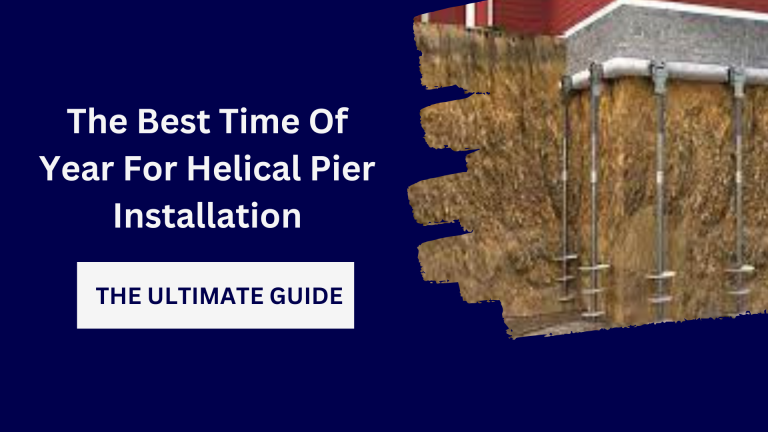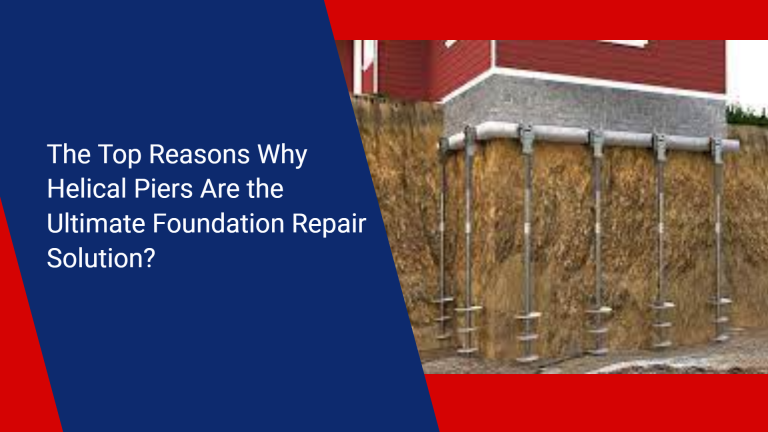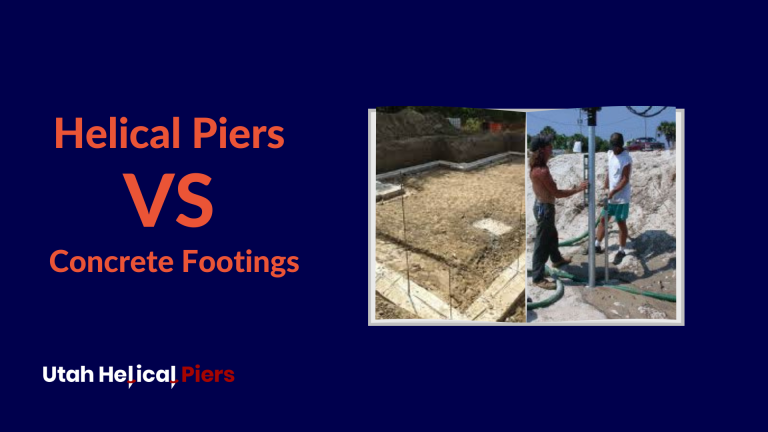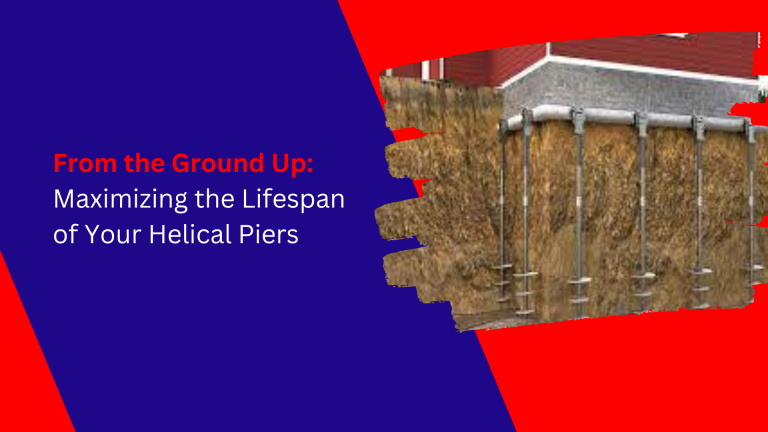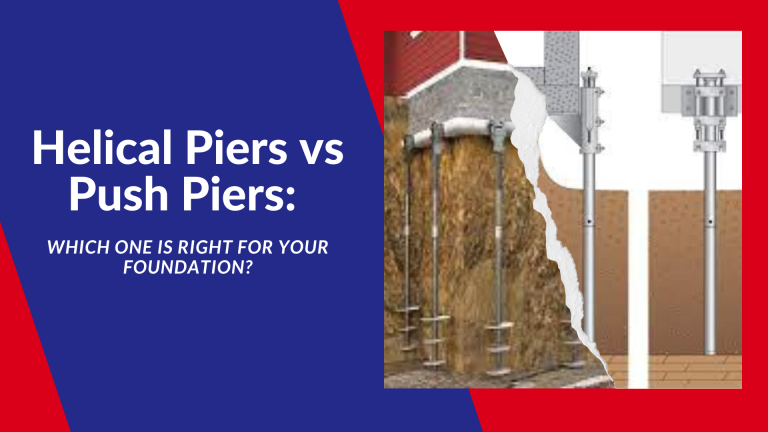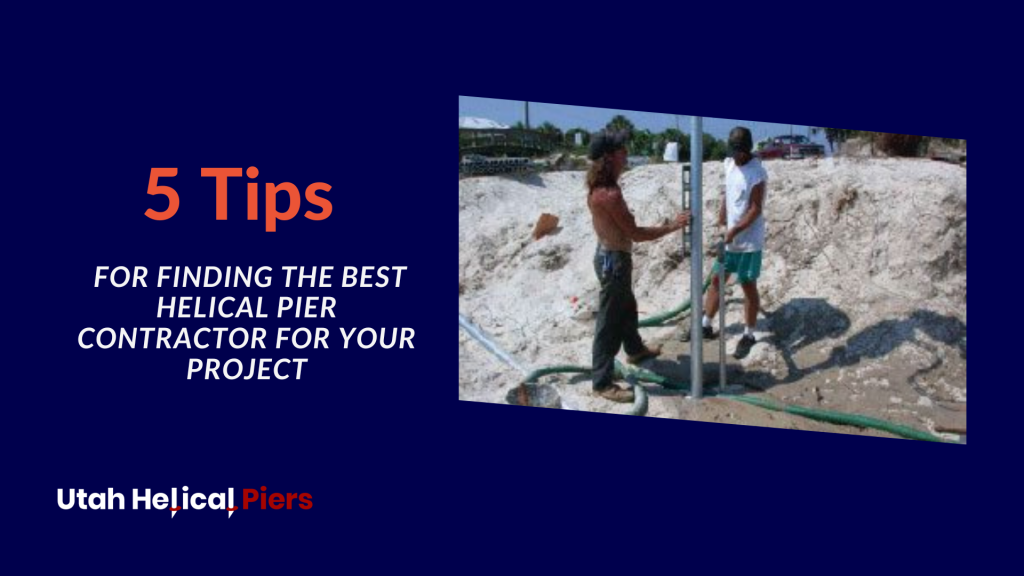
When it comes to construction projects that require the use of helical piers, finding the right contractor is crucial. Helical piers, also known as screw piles, are a popular foundation solution for many building projects due to their durability and versatility.
However, not all helical pier contractors are created equal, and it’s important to choose the right one for your project. With so many options out there, it can be overwhelming to know where to start your search. That’s why we’ve compiled a list of 5 tips to help you find the best helical pier contractor for your project.
Whether you’re a homeowner looking to build an addition or a commercial builder working on a large-scale project, these tips will help you navigate the process of finding a reliable and skilled helical pier contractor. So, let’s dive in and discover how you can ensure your project is a success from the ground up!
Understanding what a helical pier is and its uses in construction
Before you start your search for a helical pier contractor, it’s important to understand what a helical pier is and its uses in construction. A helical pier is a steel shaft with one or more helix-shaped plates attached to it. It’s designed to be screwed into the ground until it reaches a load-bearing stratum or stable soil. These piers are used to support all kinds of structures, including buildings, bridges, and even solar panels.
Helical piers are an excellent choice for many construction projects because they are easy to install, require no excavation, and can be load-tested immediately after installation. They’re also ideal for sites with difficult access or where traditional foundation methods are impractical or impossible. Helical piers can be used to support both new and existing structures, making them a versatile solution for any construction project.
Why choosing the right helical pier contractor matters
Choosing the right helical pier contractor is essential for the success of your project. The contractor you choose will be responsible for installing the piers that will support your structure, so it’s important to choose someone who is experienced, knowledgeable, and reliable. An inexperienced or unqualified contractor can cause serious damage to your property and put the safety of your building at risk.
Working with the right contractor can also save you time and money. A skilled contractor will be able to install the piers quickly and efficiently, minimizing disruption to your project schedule. They’ll also be able to identify any potential problems early on in the process, which can help prevent costly delays and repairs down the line.
Researching and vetting potential helical pier contractors
When you’re ready to start your search for a helical pier contractor, it’s important to do your research and vet potential candidates thoroughly. Start by asking for referrals from other builders or homeowners who have used helical piers in the past. You can also check online reviews and ratings to get an idea of a contractor’s reputation.
Once you have a list of potential contractors, take the time to research each one in more detail. Look for information about their experience, qualifications, and certifications. Check to see if they have any complaints or legal issues on record. You can also ask for references and reach out to past clients to get a better sense of their work.
Questions to ask when interviewing helical pier contractors
When you’ve narrowed down your list of potential contractors, it’s time to start interviewing them. During the interview process, be sure to ask these important questions:
- – How many years of experience do you have installing helical piers?
- – What kind of training or certification do you have?
- – Do you have insurance and a license to work in my state?
- – Can you provide references from past clients?
- – How do you determine the appropriate size and depth of the piers for my project?
- – What is your process for installing helical piers?
- – How long will the installation process take?
- – Do you offer any kind of warranty or guarantee on your work?
Evaluating proposals and making the final decision
After you’ve completed the interview process, you should have a good idea of which contractor is the best fit for your project. The next step is to evaluate their proposals and make a final decision. When evaluating proposals, look for details like the scope of work, timeline, and cost. Be sure to compare apples to apples by making sure each proposal includes the same services and materials.
When making your final decision, consider factors like experience, reputation, and communication skills. You want to choose a contractor who is easy to work with and who you feel confident will do a good job.
The importance of communication and collaboration with your chosen helical pier contractor
Once you’ve chosen a contractor, it’s important to establish open lines of communication and collaborate closely throughout the project. Be sure to set clear expectations and goals from the outset, and keep in touch regularly to make sure everyone is on the same page.
Communication is especially important if any issues or unexpected challenges arise during the project. Your contractor should be responsive and proactive in addressing any problems that come up. By working together as a team, you can ensure that your project stays on track and that the end result meets your expectations.
Common mistakes to avoid when hiring a helical pier contractor
When hiring a helical pier contractor, there are some common mistakes to avoid. For example, don’t choose a contractor based solely on price. A low bid may seem like a good deal, but it could indicate that the contractor is cutting corners or using subpar materials. You also want to avoid choosing a contractor who doesn’t have experience with the specific type of project you’re working on. Finally, don’t skip the vetting process and rush into a decision. Take the time to research and interview potential contractors thoroughly.
The benefits of working with an experienced and reputable helical pier contractor
Working with an experienced and reputable helical pier contractor can offer many benefits. For one, an experienced contractor will be able to identify potential problems early on in the process and address them before they become major issues. They’ll also have the skills and knowledge to install the piers quickly and efficiently, minimizing disruption to your project schedule.
Additionally, a reputable contractor will stand behind their work and offer a warranty or guarantee on their services. This can give you peace of mind knowing that your investment is protected.
Examples of successful helical pier projects
Helical piers have been used in many successful construction projects. For example, in 2017, helical piers were used to support the foundation of a new hotel in Boston, Massachusetts. The hotel was built on a site with challenging soil conditions, but the use of helical piers allowed the project to move forward without delay.
Another successful project involved the installation of helical piers to support a solar panel array in Arizona. The site was located on a steep slope, making traditional foundation methods impractical. The use of helical piers allowed the project to be completed on time and on budget.
Conclusion and next steps
Finding the right helical pier contractor can make all the difference in the success of your construction project. By following these 5 tips and doing your research, you can choose a contractor who is experienced, reliable, and easy to work with.
Once you’ve chosen a contractor, be sure to establish clear lines of communication and collaborate closely throughout the project. By working together as a team, you can ensure that your project stays on track and that the end result exceeds your expectations.
So, what are you waiting for? Start your search for the perfect helical pier contractor today!

